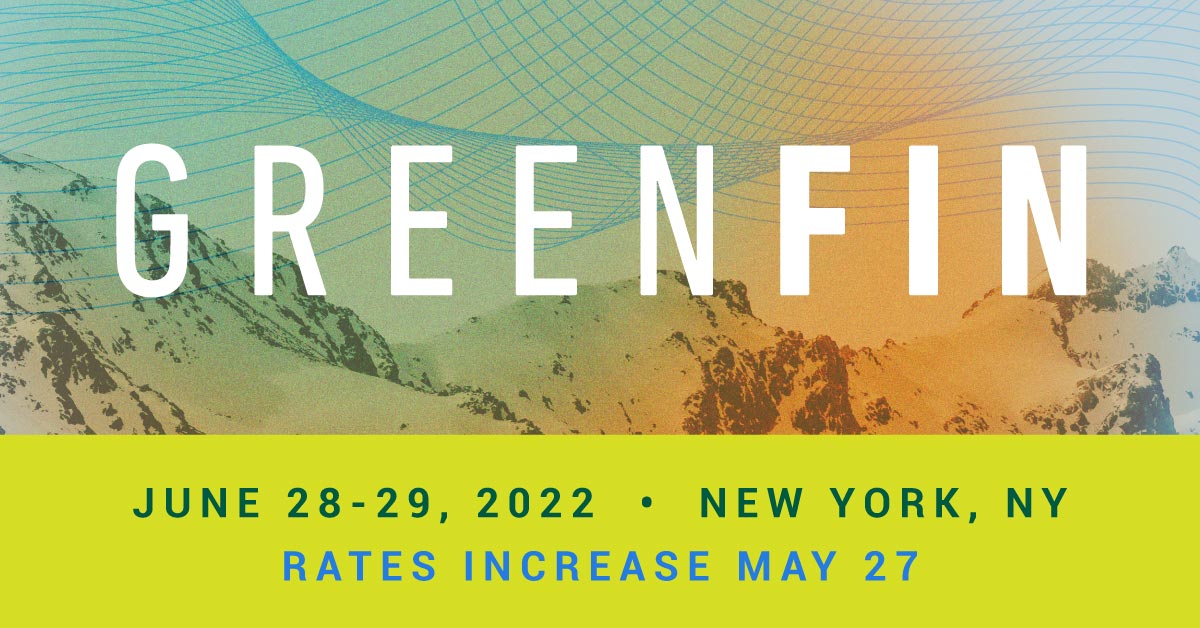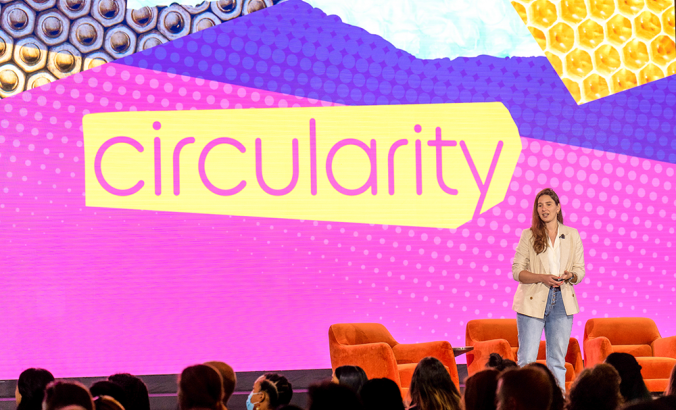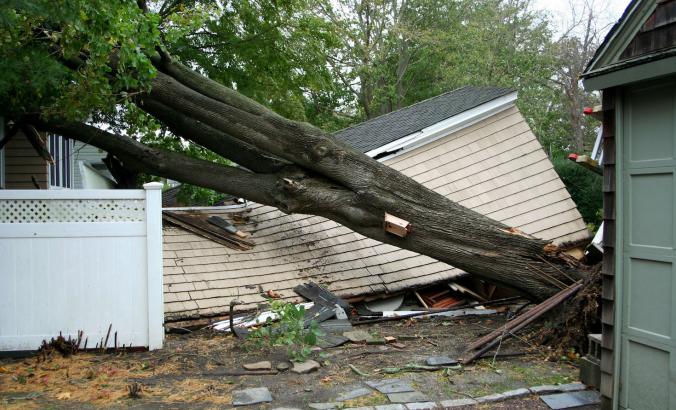In 2015, when the 193 countries in the United Nations pledged to achieve the 17 Sustainable Development Goals by 2030, they committed to a transformational global shift for a healthier, more peaceful, more prosperous planet and population. However, in 2022, we’ve found ourselves in the middle of a different kind of great transformation: The COVID-19 pandemic has taken a devastating toll on human life and livelihoods and threatened global systems that had previously been taken for granted, from food systems to supply chains to public health.
At the same time, the pandemic presents the opportunity to build these systems back in a more resilient and sustainable way. Many innovative solutions to these problems already exist in the private sector, specifically with members of the UN Global Compact, a network this includes more than 15,000 companies committed to sustainable and responsible business practices.
On the mainstage at GreenBiz 22, GreenBiz’s annual conference on the business of sustainability in Scottsdale, Arizona, UN Global Compact CEO and Executive Director Sanda Ojiambo sat down with GreenBiz Editorial Director Heather Clancy to discuss the private sector’s progress on the SDGs at this critical time. The pandemic undoubtedly slowed progress on the SDGs, Ojiambo noted, but it also provides a new way of thinking about them.
Ojiambo说:“我认为发生了变化,这可能是房间里的许多商业领导者的转变,是紧迫性和对真正的野心和大胆领导的需求。”“大流行确实为企业提供了一个机会,使企业与企业合作和企业进行创新。”
So what will it take to achieve them? Ojiambo outlined four main areas for business at large to focus on.
1.坚实的报告框架
Corporate reporting on sustainability measurements is gaining a foothold around the world. Many companies are creating a veritable alphabet soup of reports, from the Science Based Targets initiative (SBTis) to the Task Force on Climate-related Financial Disclosures (TCFD) to broader environmental, social and governance (ESG) metrics. Reporting on SDG progress is equally important, Ojiambo noted.
她说:“ Ojiambo呼吁上下文和广泛的框架报告:“我们已经超越了这样的概念,即公司的成功只是基于财务状况的基础,”她说。
TheSDGscover far more than material financial issues — they include poverty, water issues, gender equality, human rights and renewable energy.

为了开始举报,Ojiambo说公司必须问自己一些问题。“首先,我们要报告什么?因为最初的动机非常重要 - 您是为了报告的目的而举报,还是因为您坚信建立基准并努力持续改进并透明您的报告很重要?”
“第二个是,当我们拥有所有这些数据时,我们该如何处理?您是否使用它来做出更好的决定,以更好的方式推动资源或行动,这助长了您的公司和生态系统的成功?”她补充说。
在这一点上,联合国全球契约有其自己的报告系统,称为进步的沟通。它可以帮助成员公司进行基准测试和报告,以了解其在行业及其行业的位置。公司可以寻求他人的成功并从业务行为中学习。Ojiambo说,这种沟通对于全球紧凑型的沟通也至关重要,表明公司可以通过成为我们网络的一部分来证明可衡量的进展。
2.看一下供应链
去年,由于大流行和经济关闭,世界遇到了供应链和劳动危机。制造和货物减慢了,导致全球商品和服务短缺并影响消费者。
"During the years of the pandemic, the supply chain was probably one of the most fragile areas, in terms of [business] not really fully grasping how all the changes globally were going to impact the supply chain," Ojiambo said. "Closing borders, changes in movement of traffic and goods back and forth, and not really understanding what was going on maybe from a human rights or labor perspective … Sustainability and success rely on the supply chain."
她指出,鉴于微妙的情况,企业需要考虑其业务生态系统中的可持续发展目标。她说:“对我们来说,这是对供应链的反思的机会,以及如何真正建立可持续的业务原则,从而使自己长期保持可持续性。”
Taking a corporate strategy perspective is key. "Your supply chain is not incidental — your externalities are not incidental to how you do your core business," Ojiambo said. "Businesses need to take their whole ecosystem into consideration: Look at who your stakeholders are, and the impact of business as a whole. So for anything that you would do at your headquarters, my question would be, can you take an analysis of the importance of that work and run it through your supply chain and see what it looks like there? Where do you have gaps? Where do you have improvement opportunities? And how do you leverage your supply chain to truly build resilience in your supply chain for the long term?"
吸引供应商和买家对于企业在其可持续发展目标上取得切实的进步至关重要,并实现这一范围内的转型。
她解释说:“我们经常谈论范围3以进行排放,但您可能需要拥有所有范围3。”“您围绕贿赂和腐败的范围3是什么?围绕人权和劳动?”
3. Getting SMEs on board
Ojiambo指出,这不仅与大型合作伙伴有关。
她说:“目前有巨大的业务增长和可持续性机会。”必威体育2018“挑战看起来与全球不同。”
在大多数经济体,尤其是新兴经济体中,中小型企业(SME)起着重要作用。世界银行估计中小企业约占全球90%的企业,超过50%的就业。另外,它们至少是大多数大型企业供应链的一部分。
世界银行估计that SMEs represent about 90% of businesses and more than 50% of employment worldwide.
Ojiambo指出,如果没有考虑中小企业,它们可能是可持续发展目标成功的最弱点。联合国全球契约是发展new programs and strategies to support SMEs, specifically by leveraging digital tools and value chains to reach scale. Ojiambo pointed to one notable initiative: a new intersectional gender and responsible procurement program.
4. Keeping businesses accountable
How do businesses ensure that they’re taking action on SDGs, and that this action is driving real change? Ojiambo said that the answer is accountability.
她说:“任何业务领导者首先都需要对自我负责。”“您正在长期运营一家业务。因此,问责制的本质需要从公司本身开始。我认为,问责制的第二本书是查看您的更广泛的利益相关者,看看您需要在旁边负责的人。重要的是要满足客户需求,监管需求,股东需求。对我的问责制是广泛的,并涉及ESG框架带来的要素。”
Ojiambo指出,现在的问责制特别重要。她说:“我们生活在一个分裂的世界中,有信任赤字。而且,必须做很多事情要使所有这些都重返和谐。”
This is especially important in the face of the ongoing climate crisis. "All of our future depends on having an environment that is in harmony with the way we produce and consume," she said. "So to the extent that we run the risk of leaving a future world very different from the one that we live in. That is extremely urgent."
随着时钟朝着2030年的打击,挑战越来越大,但机会是巨大的。Ojiambo说,“围绕理解可持续性和可持续发展目标的工作有很多良好的工作和意图,但是现在我们需要看到业务和成果。”必威体育2018“业务可以在其中发挥关键作用。”






